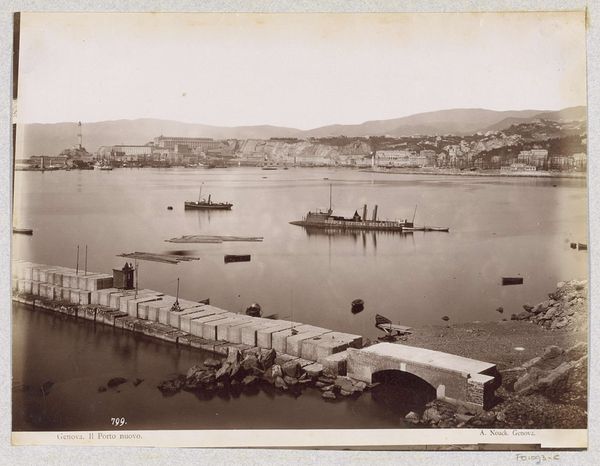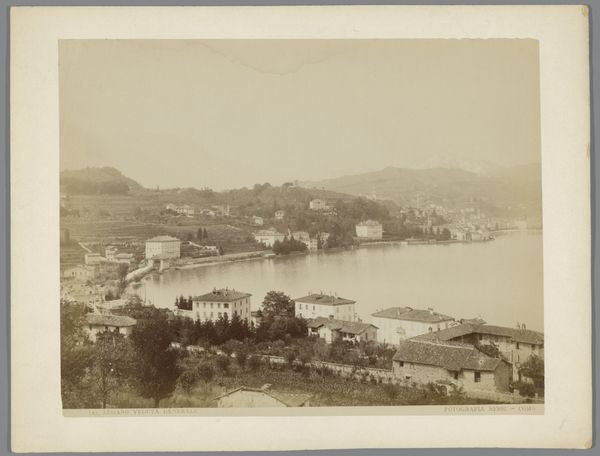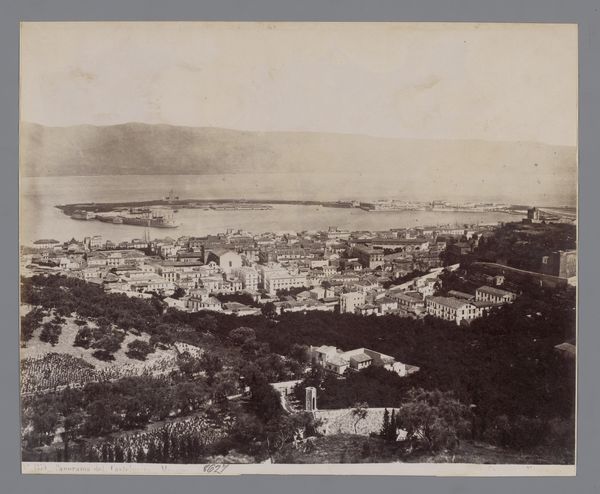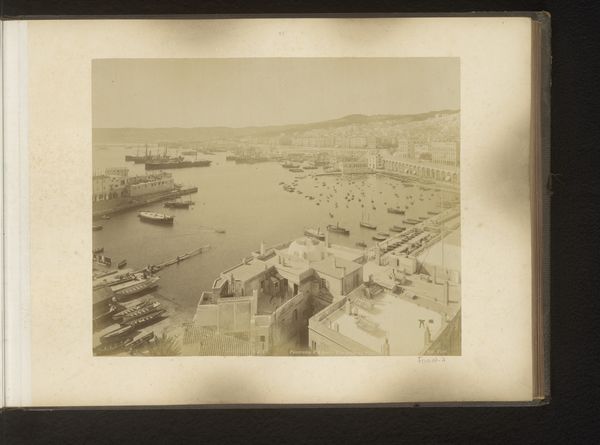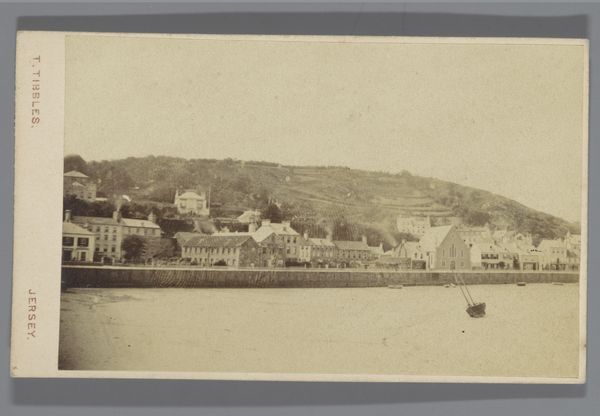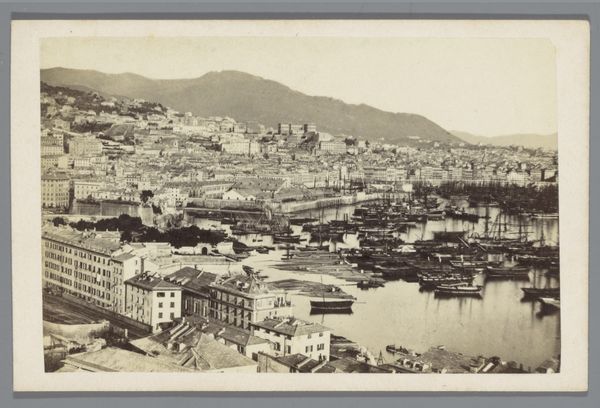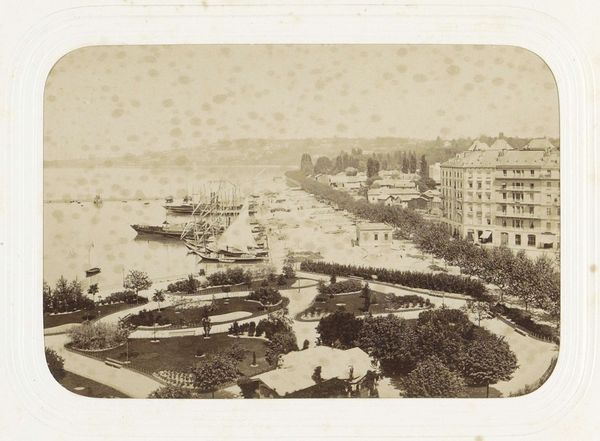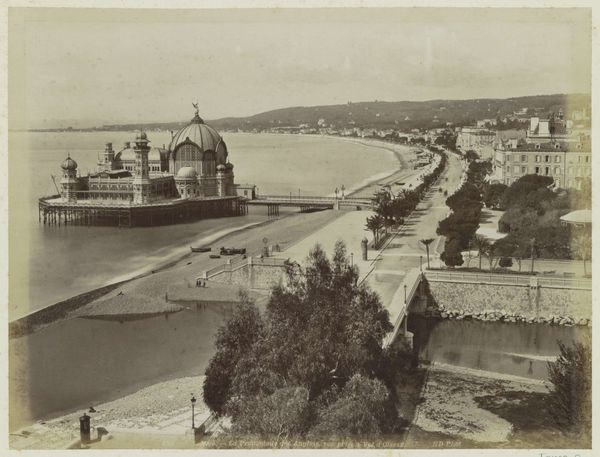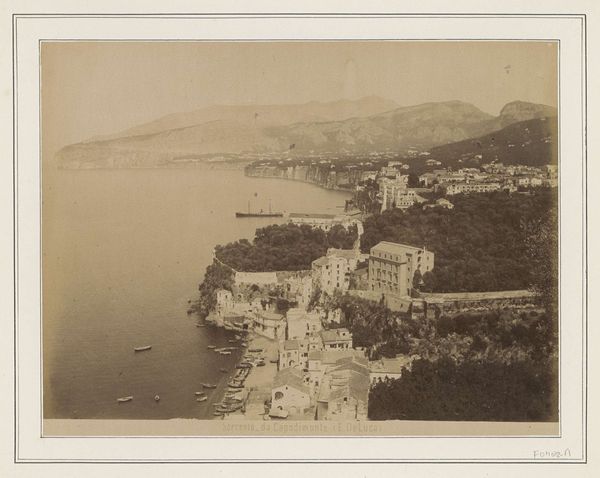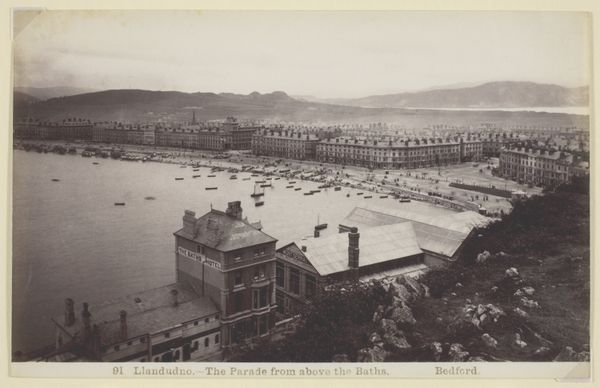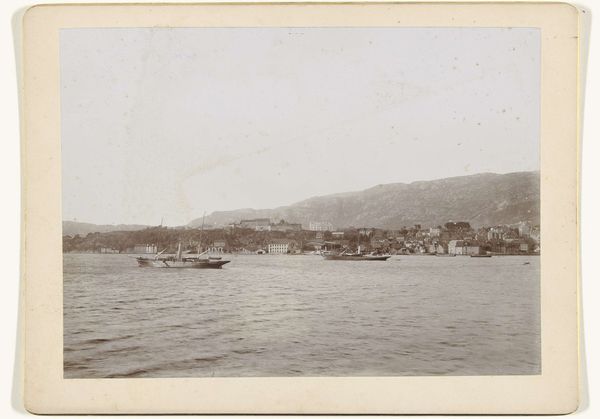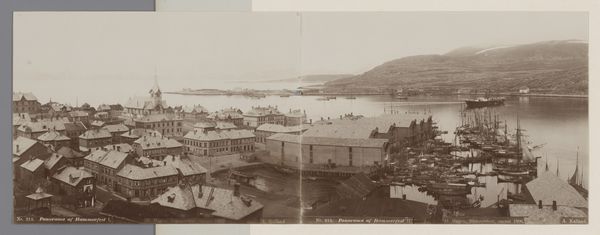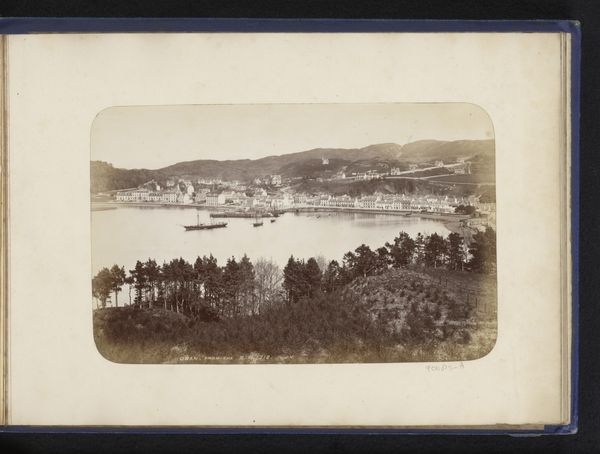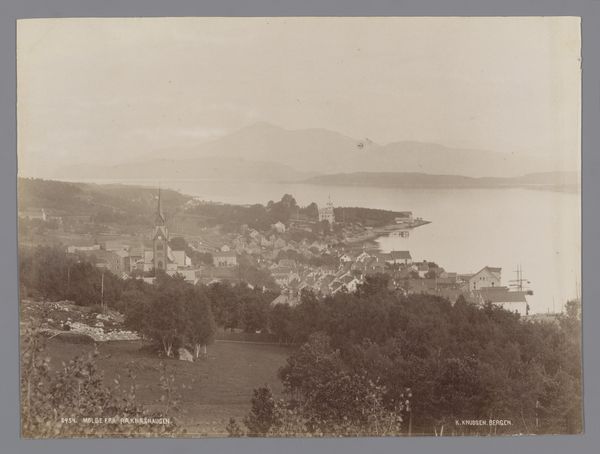
Prentbriefkaart aan Willem Bogtman Possibly 1932 - 1936
0:00
0:00
richardnicolausrolandholst
Rijksmuseum
photography
#
landscape
#
photography
#
historical photography
#
cityscape
Copyright: Rijks Museum: Open Domain
Editor: So, this photograph, "Prentbriefkaart aan Willem Bogtman," possibly from between 1932 and 1936, taken by Richard Nicolaüs Roland Holst. It’s a cityscape capturing a beach scene... I’m struck by the sheer density of people, the way they’re packed onto the beach like… well, like commodities on display. How do you interpret this work? Curator: The composition, from an elevated perspective, gives us a clear power dynamic between the viewer and the viewed. Think about it: Who are these people? The historical context of the interwar period reveals the rise of leisure travel, but who could afford such trips? This photograph unveils a glimpse into the socio-economic disparities of the time, doesn't it? It displays the commodification of leisure for the privileged classes. Editor: That's a really interesting perspective! I hadn't considered it in terms of class. I was so focused on the overall composition. Curator: Consider the photographer, Holst. Where did his sympathies lie? Was he celebrating this leisure, or critiquing it? His own political leanings as a socialist certainly influence how we read this image today. It isn't merely a pretty picture; it's a document ripe with ideological undertones. How does viewing it now, knowing this was created just before a global conflict, reshape your initial impressions? Editor: It makes me think about escapism, about the fragility of that kind of carefree existence. The impending war casts a shadow. Curator: Exactly. Art often reflects, and anticipates, the anxieties of its time. It shows the importance of seeing these historical works as echoes of past conversations and debates. Editor: I will definitely be researching the photographer's politics! Thank you. Curator: And I am taking away how crucial composition is when exploring socio-economic contexts.
Comments
No comments
Be the first to comment and join the conversation on the ultimate creative platform.
